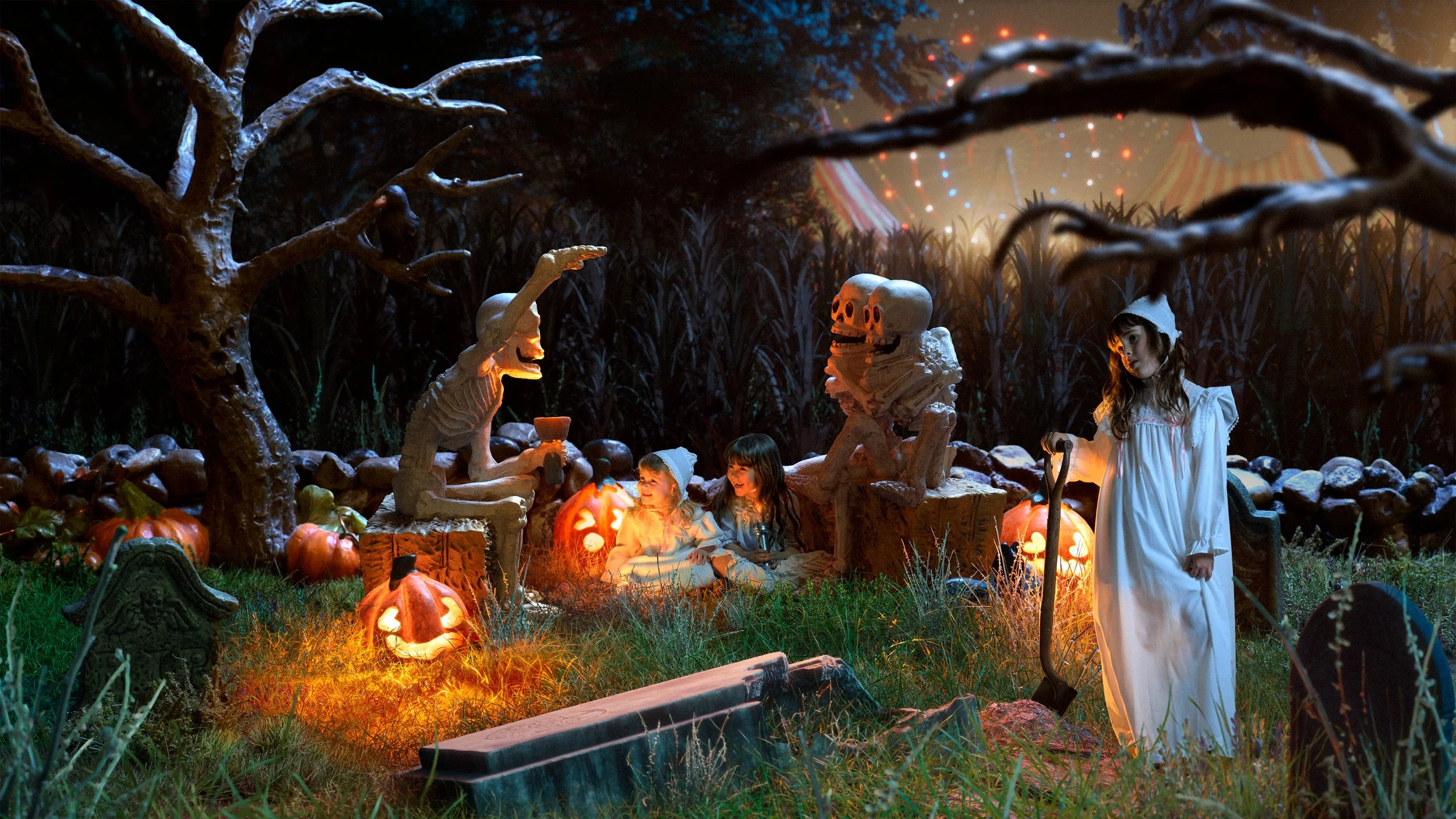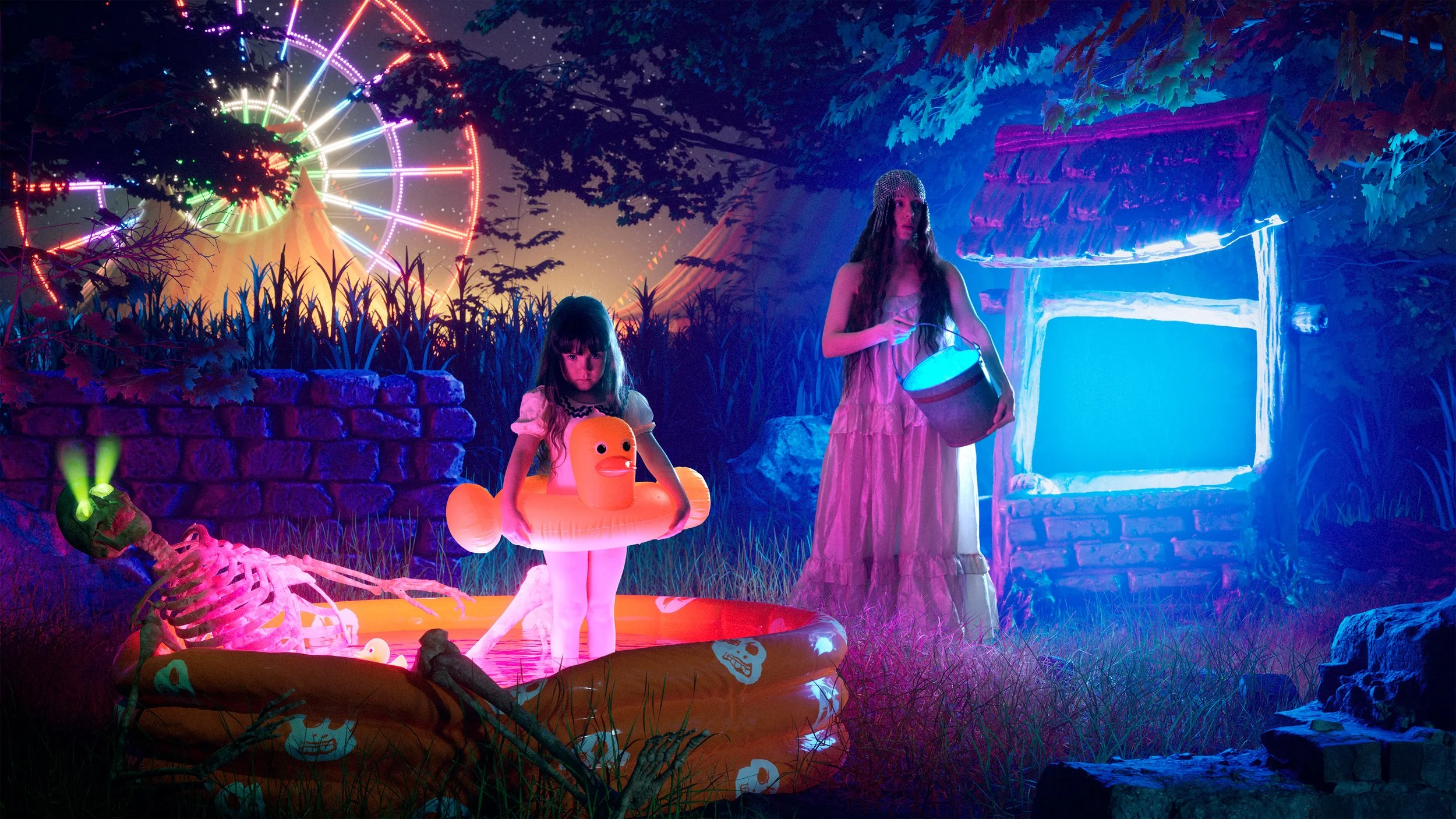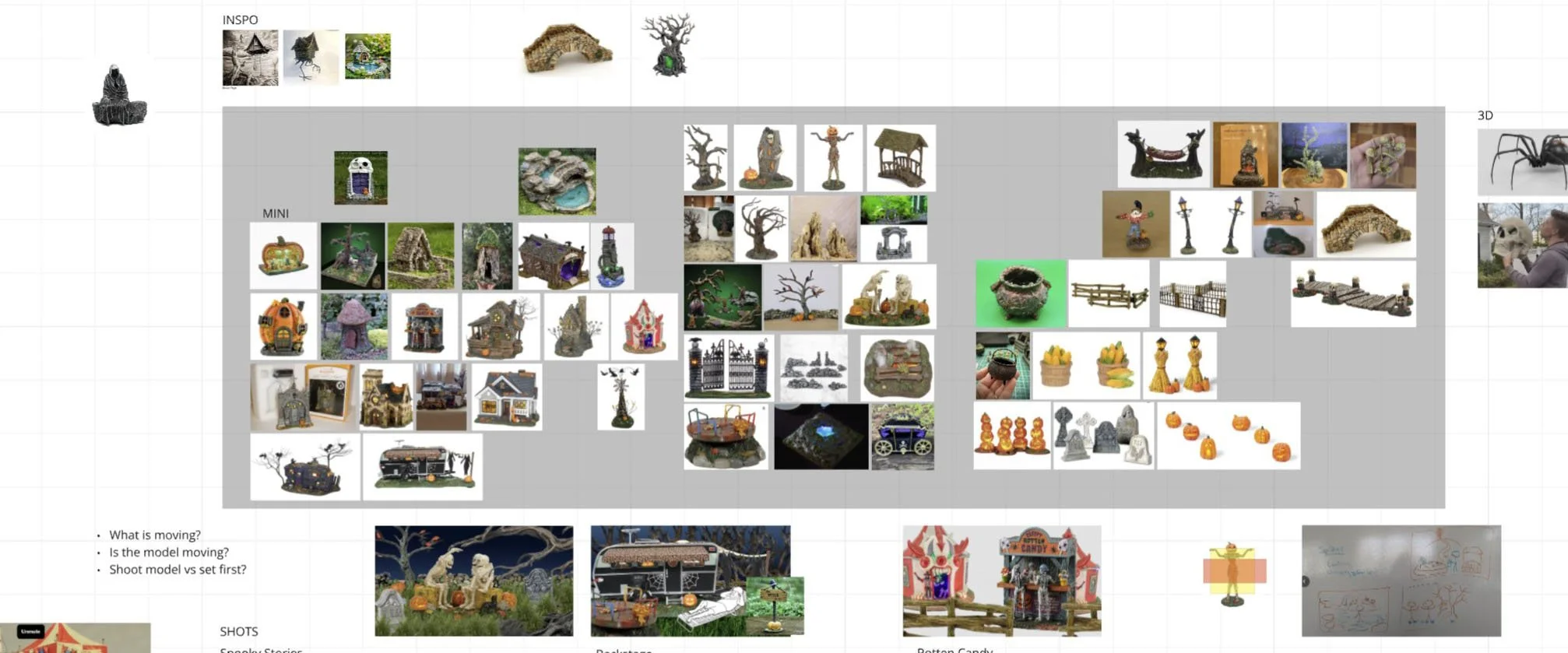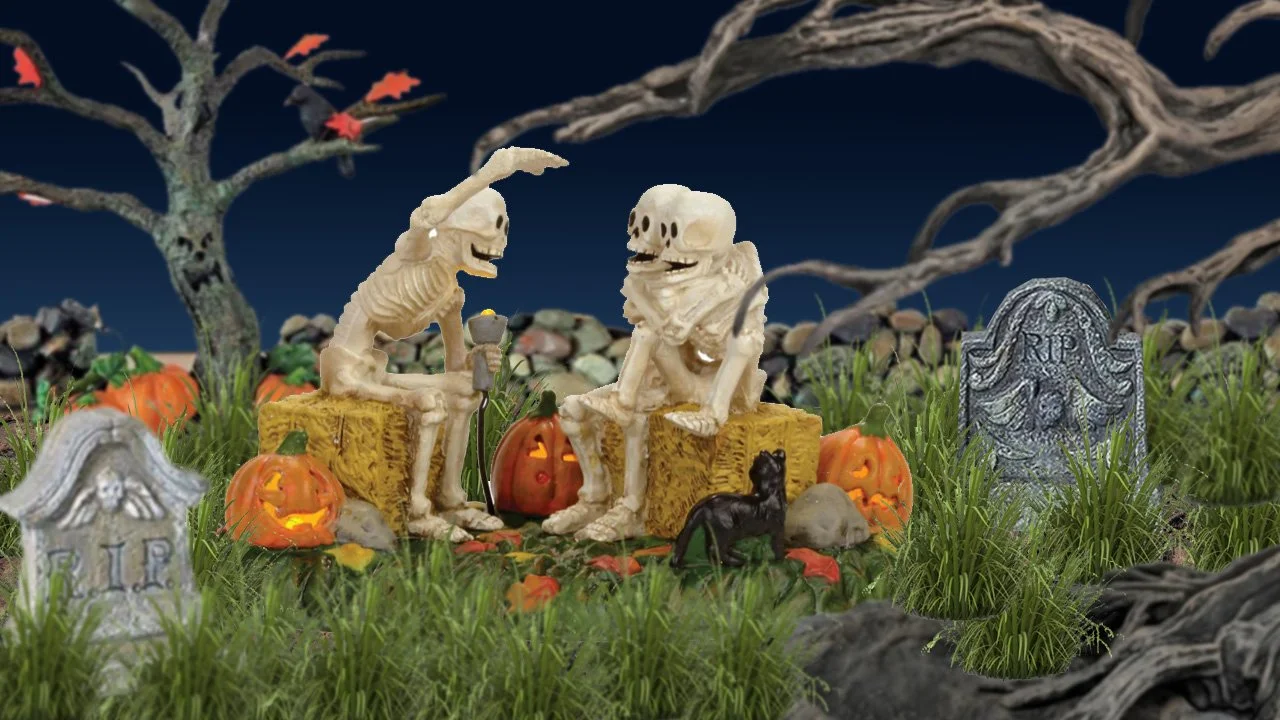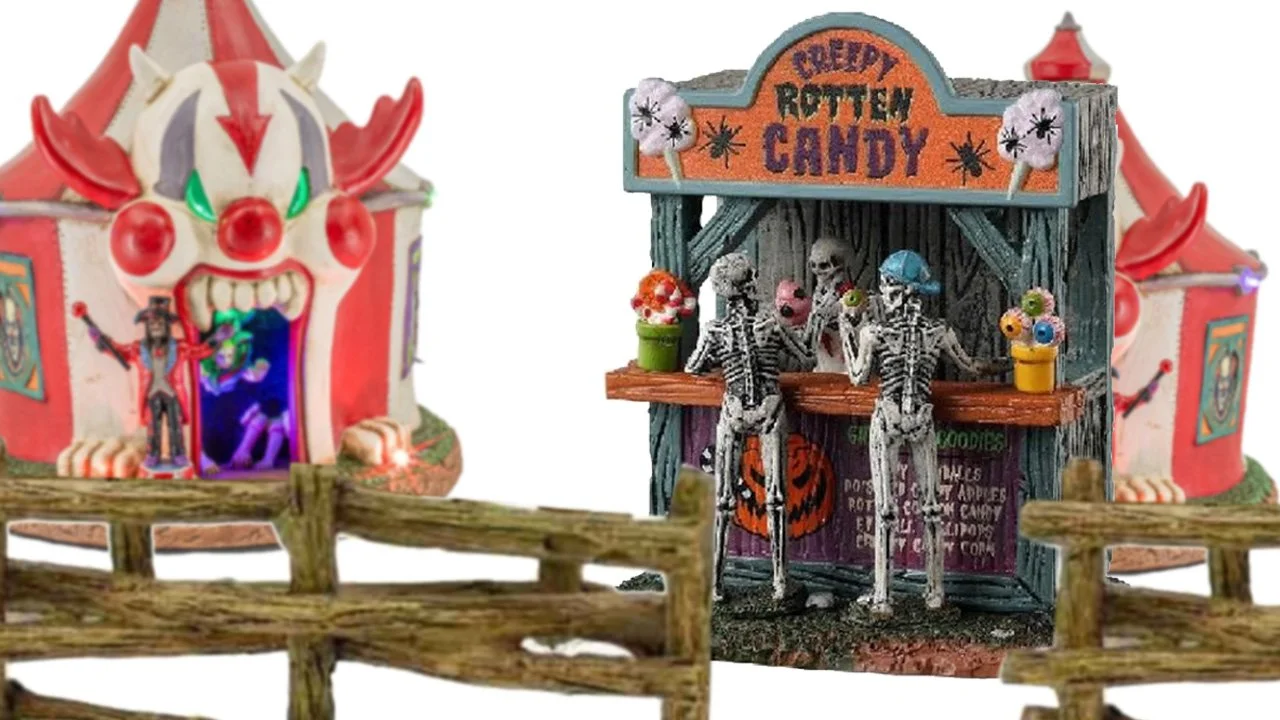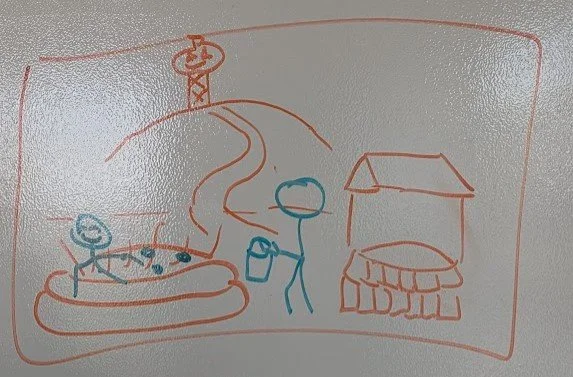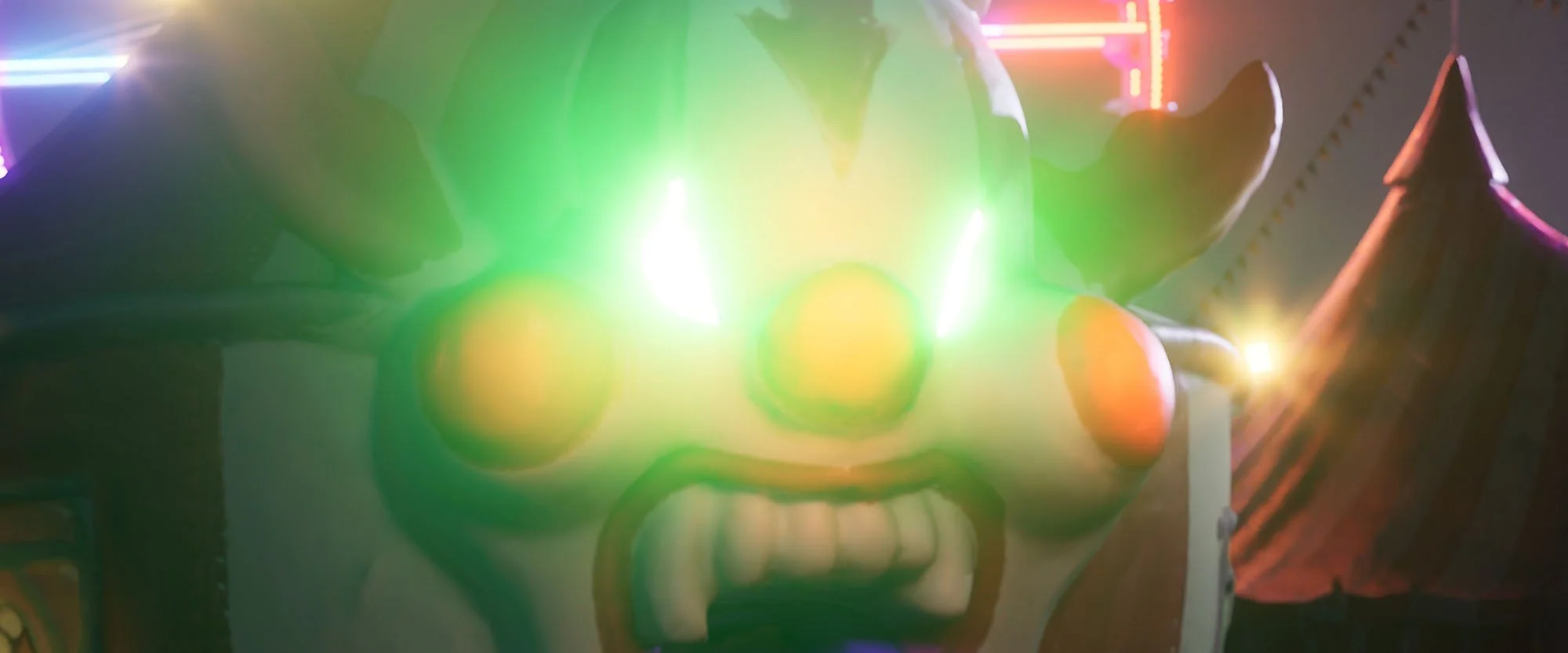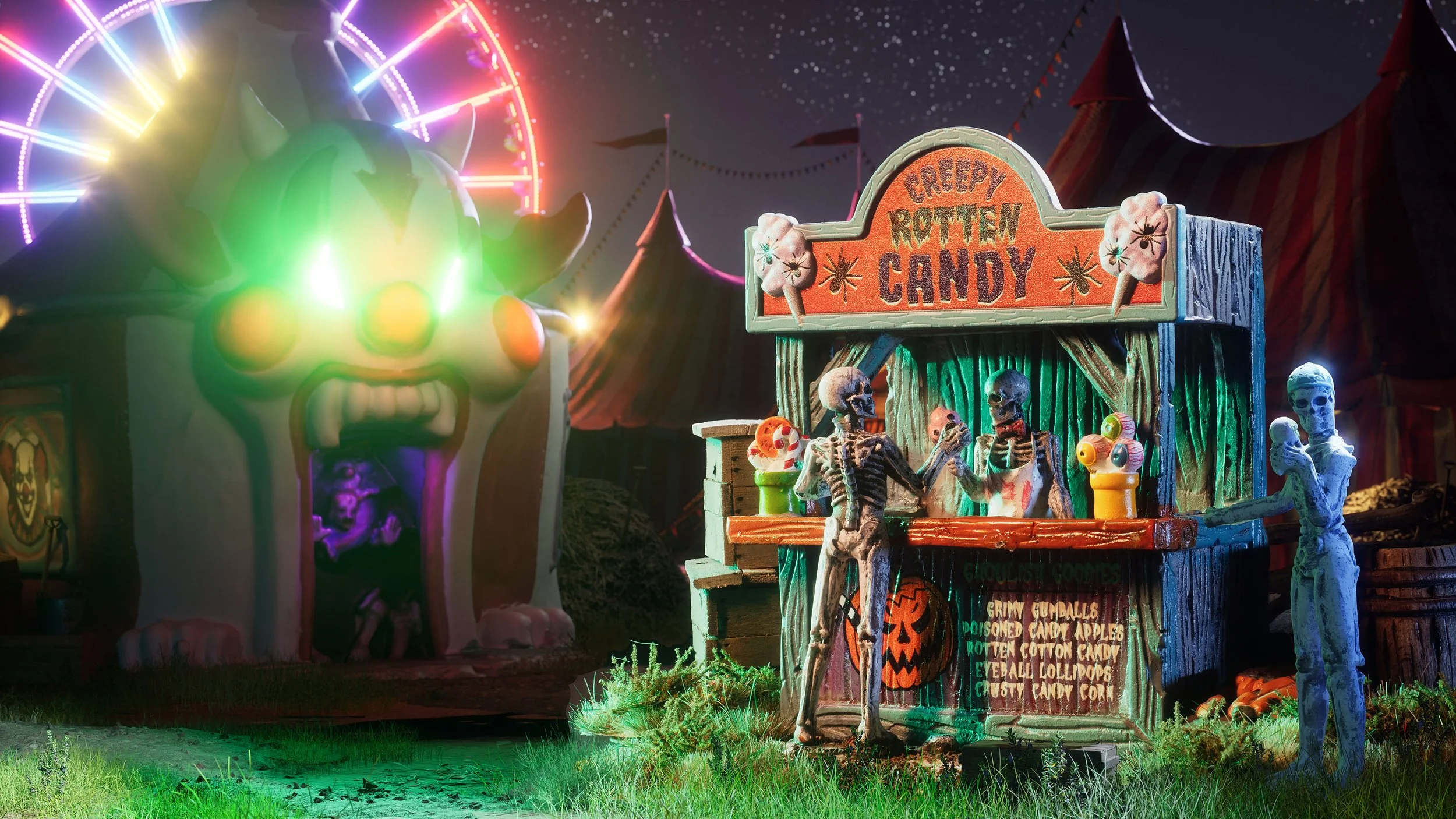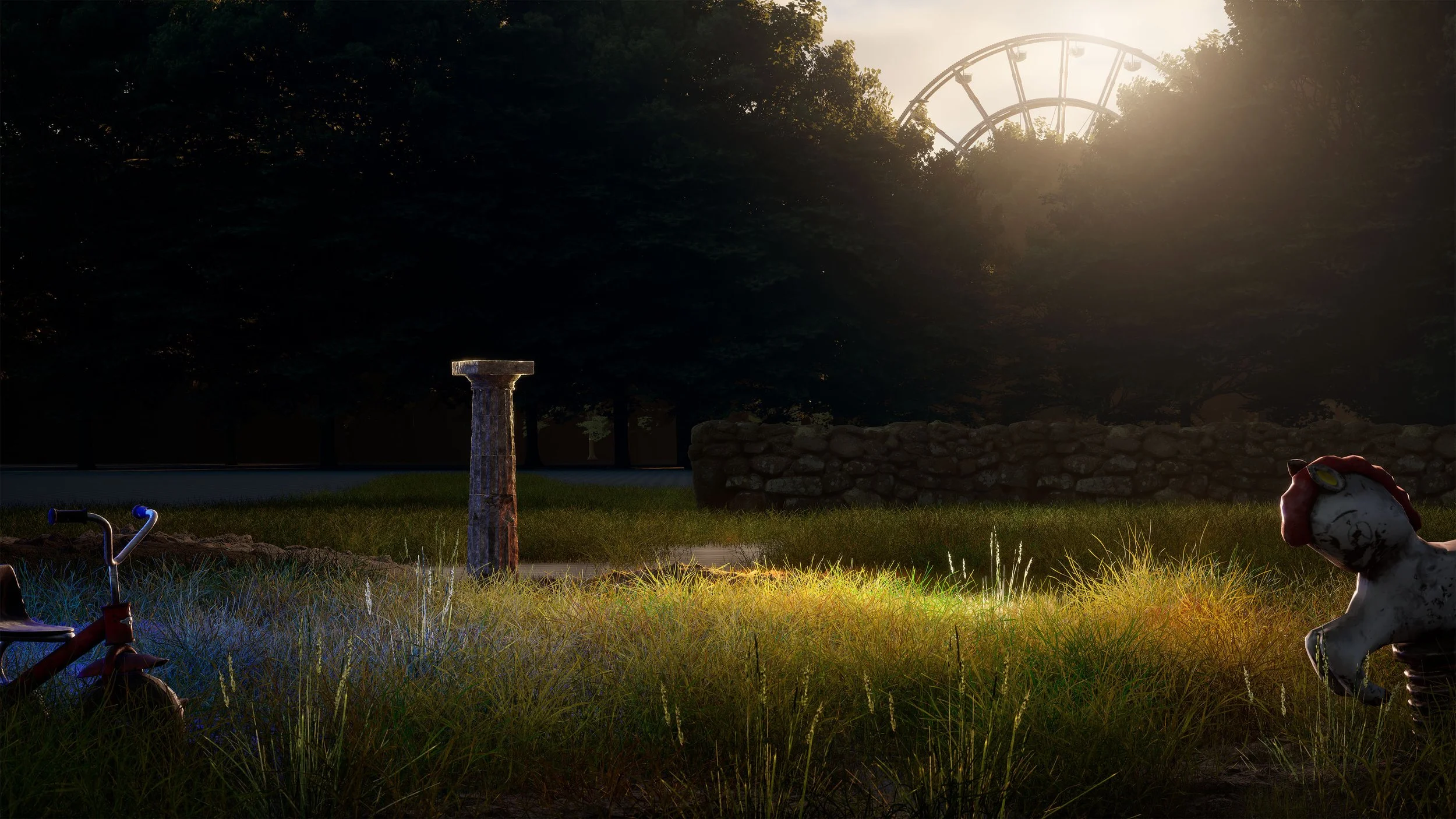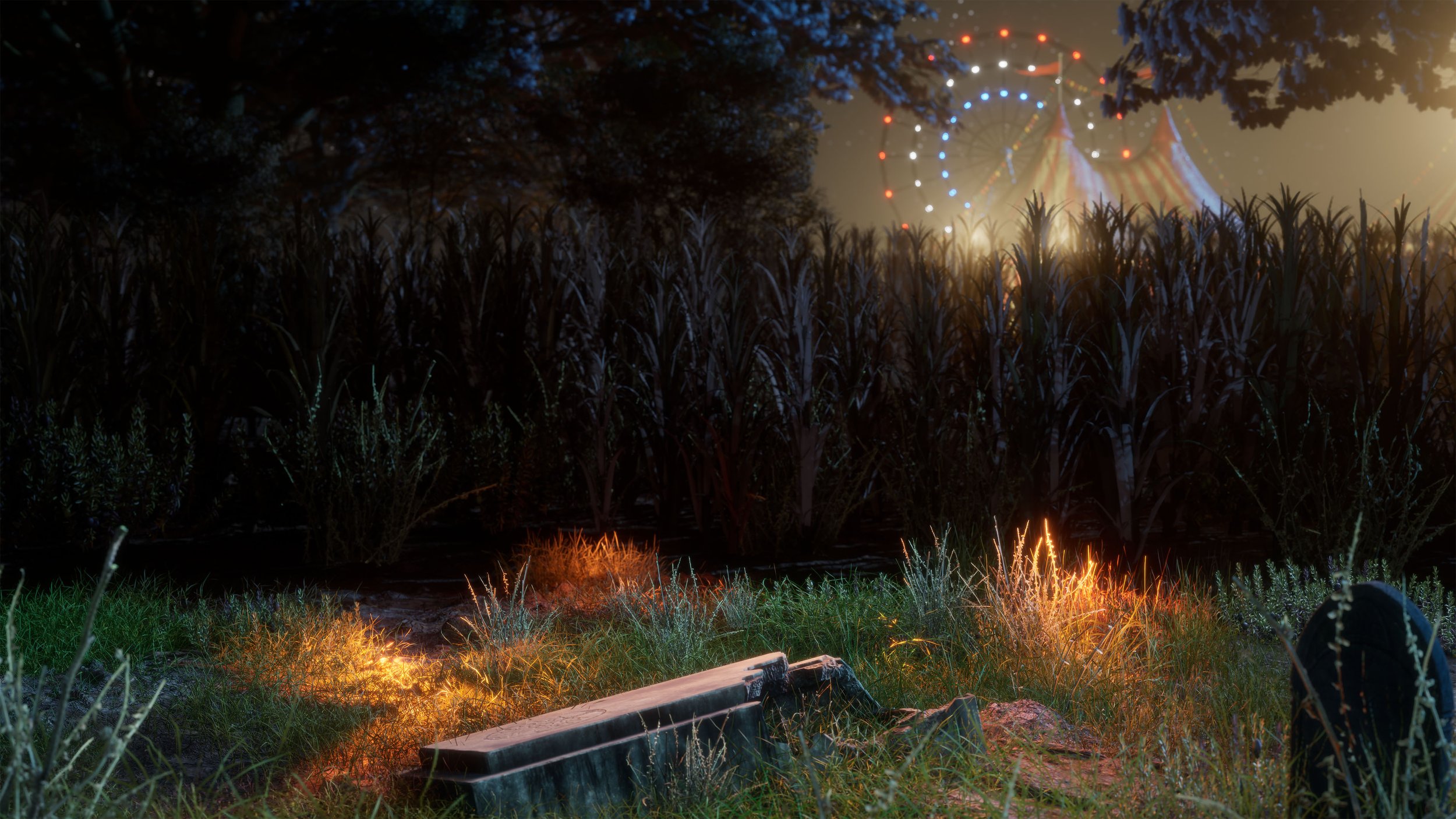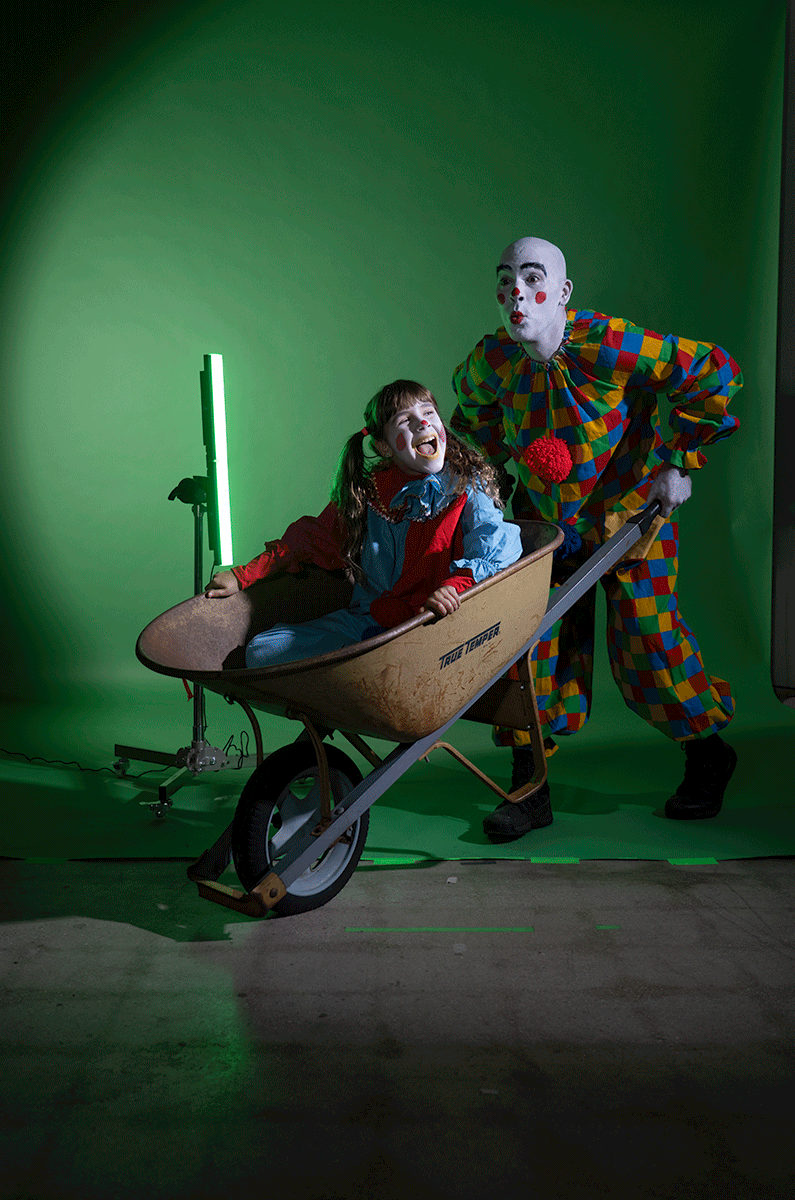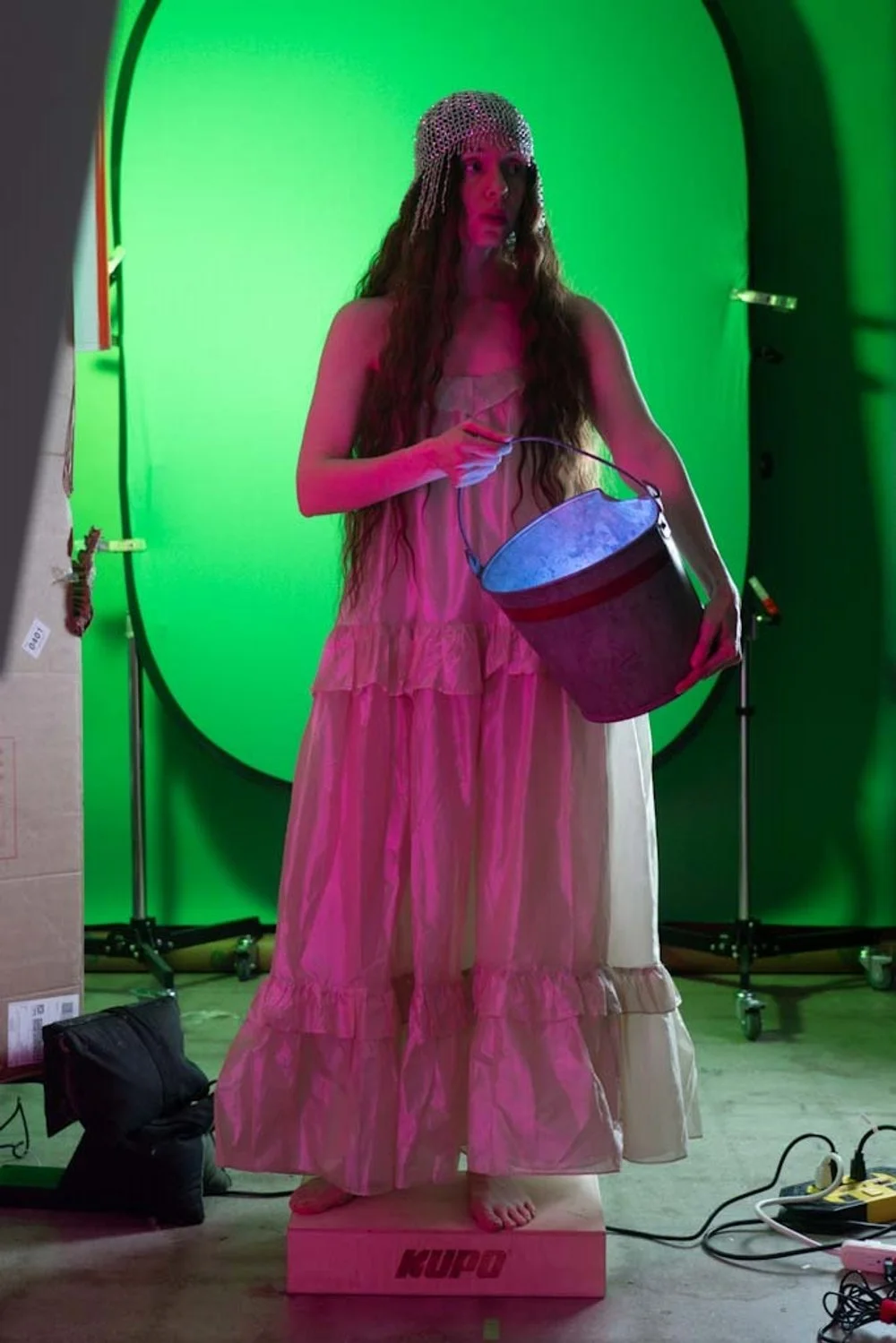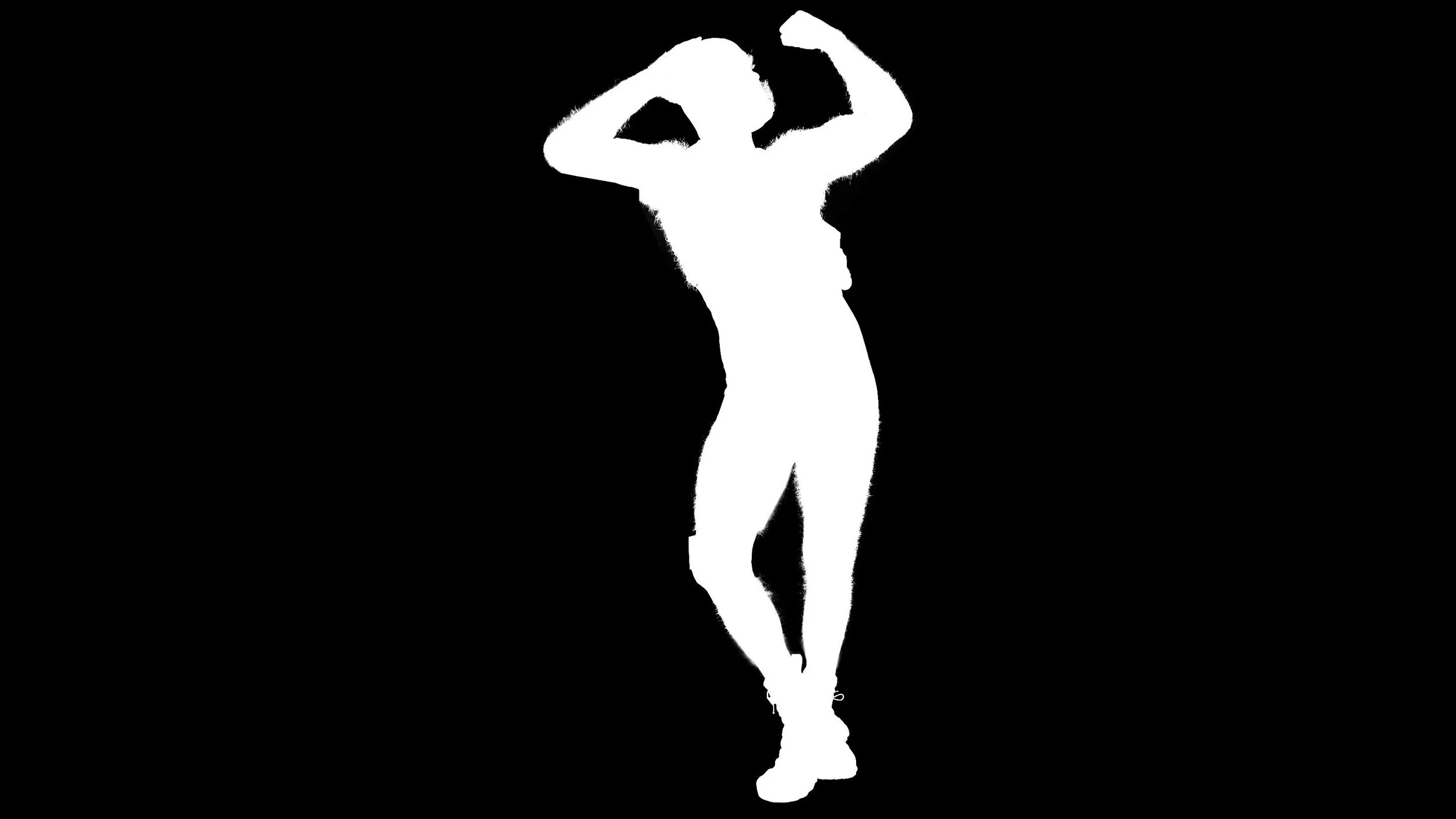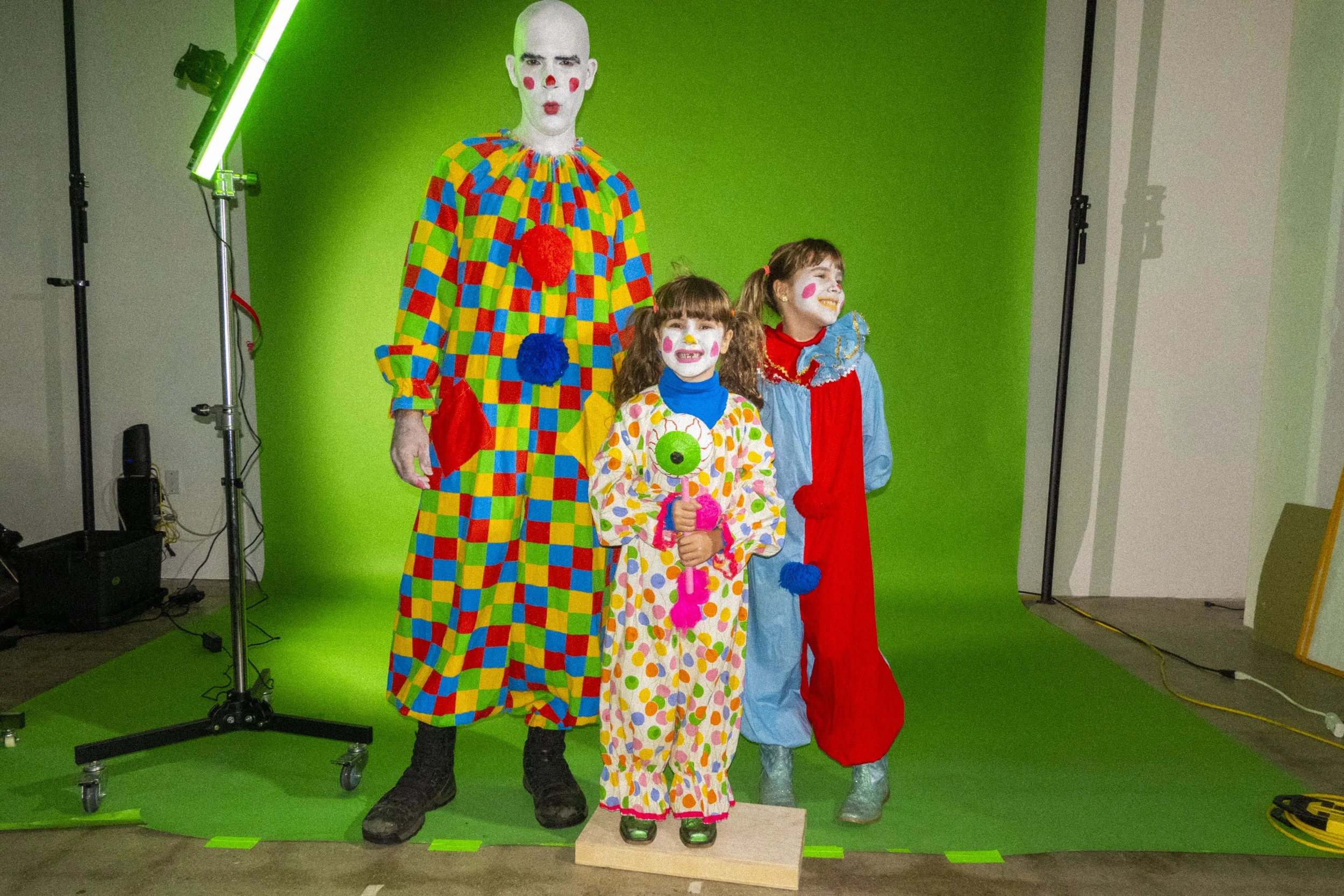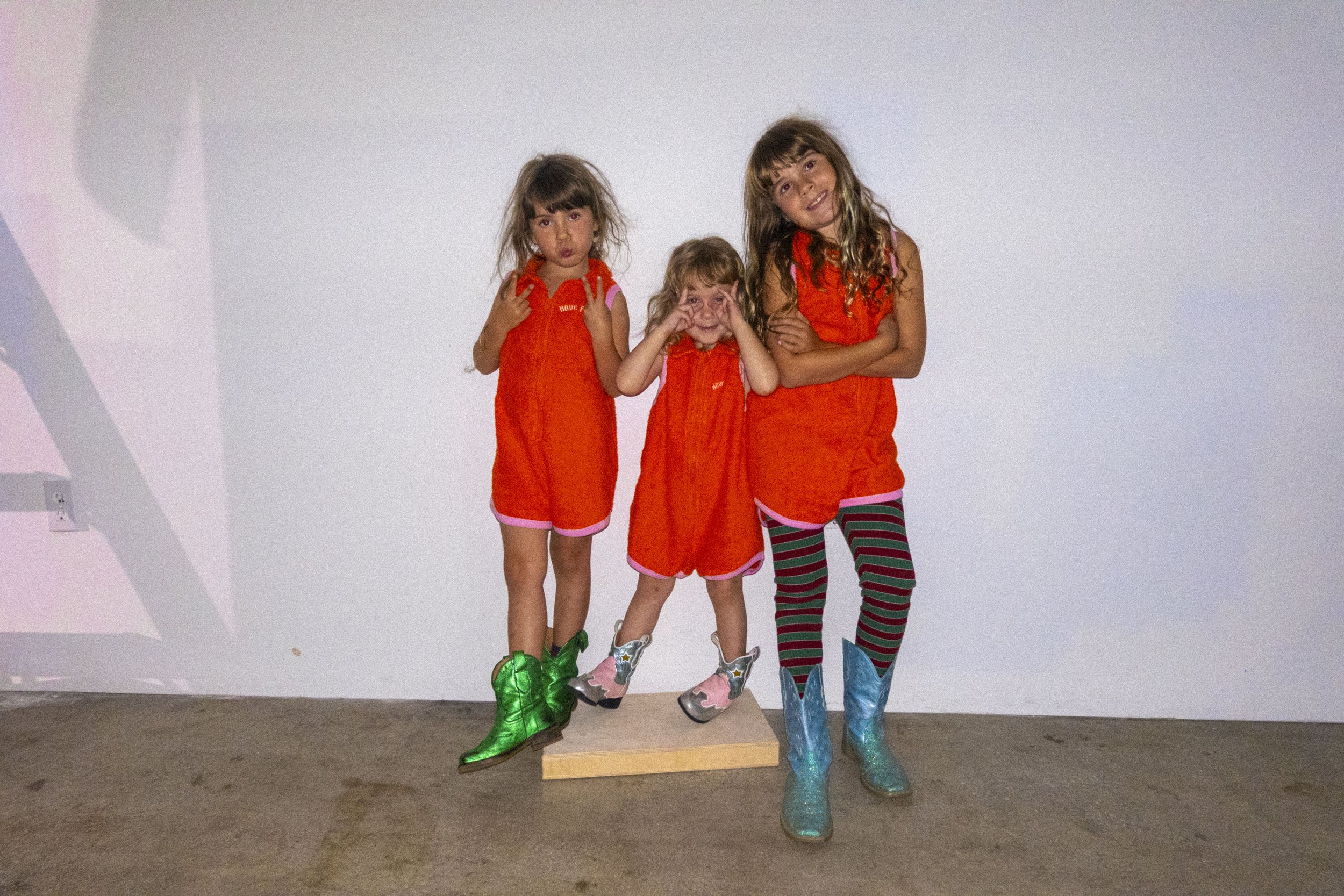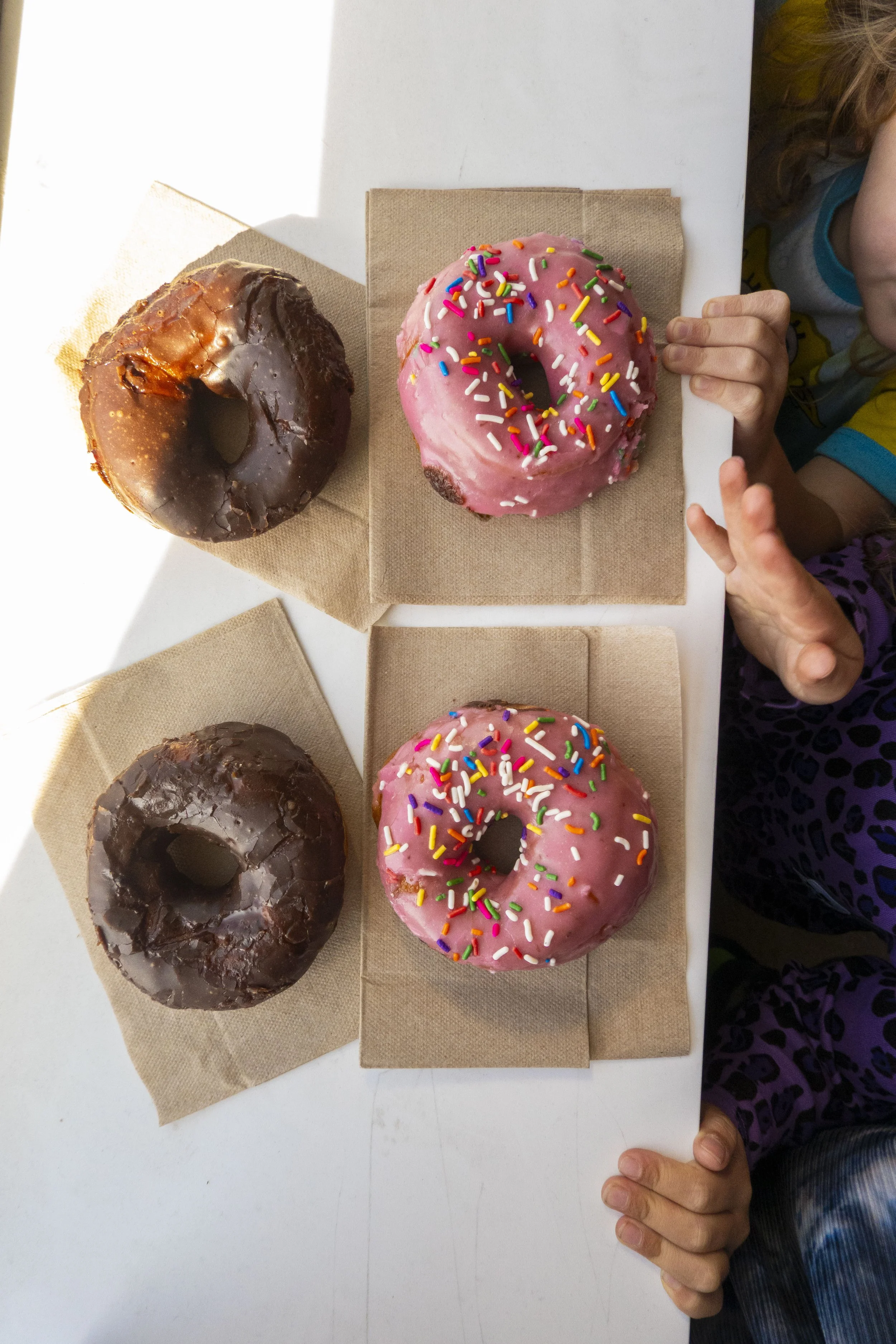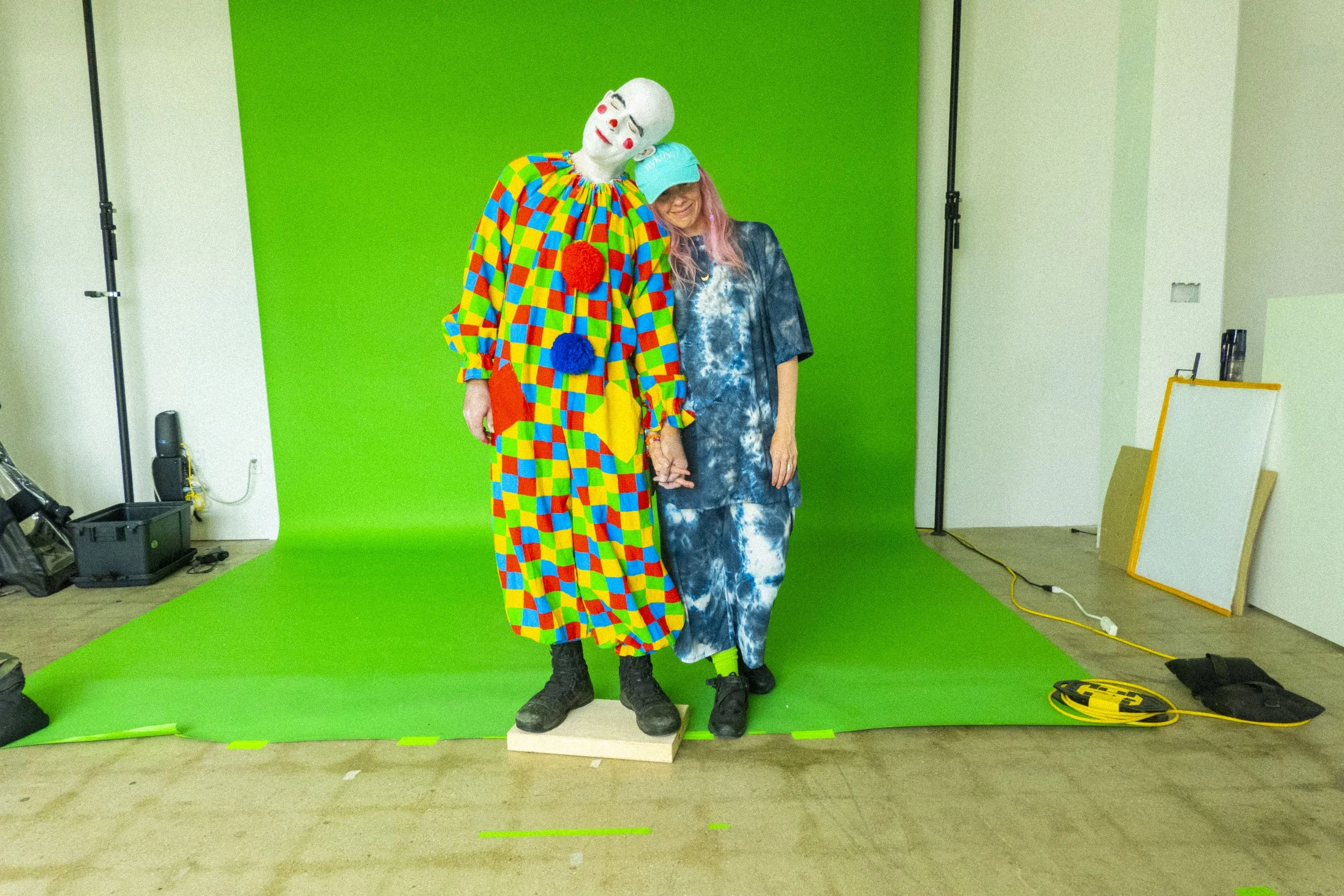PROCESS
DEVELOPMENT
The initial planning phases for this project were all about seeing what kind of spooky miniatures we could find. Luckily there are quite a few places that make great little props for Halloween decorations. We also incorporated a bunch of other miniatures for miscellaneous objects like rocks and grass that would make the world even more uncanny.
BRAINSTORMING
Brainstorming
MINIATURE PHOTOGRAPHY
Photographing the miniatures was both a design and technical challenge. From a design perspective, we needed to understand how each piece would integrate compositionally within the larger virtual worlds we were building. To visualize this in real time, we used Unreal Engine’s Composure system to live-preview the camera feed composited directly into our working 3D environments. Technically, the miniatures were literally miniature, and to capture them completely in focus we used focus stacking in post-production, combining multiple focal planes into a single sharp image.
Some of the miniatures included interior lighting, which added great atmosphere but introduced a new technical challenge. The miniature lights needed to be balanced with the stage lighting we used to illuminate the set, and because they were extremely dim, we had to rely on long exposure times, often between 30 and 60 seconds, to capture the proper balance.
For a few of the miniatures we decided to 3D scan them using photogrammetry and Reality Capture to get the look that we wanted. This had the benefit of being able to light the props in Unreal Engine like a traditional 3D actor instead of photographing them with real lights. With the miniatures now scanned as 3D models we could edit them and assign new materials to create things like glowing eyes that would naturally interact with the rest of the model and environment.
VIRTUAL WORLDS
The environments were constructed primarily in Unreal Engine, integrating Megascans, Fab assets, and custom geometry. Due to limitations in Unreal’s hair and feather rendering, the chickens in the Rotten Candy sequence were rendered in Arnold from Maya for improved feather realism. The Unreal scenes were built in layers to facilitate compositing of the photographed miniatures during post-production. All Unreal renders were produced using pathtracing and at a 12,000 × 6,750 resolution suitable for large-format print output.
THE SHOOT
This is the Reed+Rader family! These three little ladies, 8, 5 & 3 years old, are quite wild to control on set.
The characters, a family of carnival performers in a dark carnEVIL-themed world, were primarily captured on greenscreen. On set, lighting was designed to match the direction, color, and intensity of the corresponding virtual environments for seamless compositing in post-production.
Composite
After the CG worlds were rendered from Unreal Engine and Maya and the character photography was wrapped everything came together in compositing. The greenscreen footage was keyed and rotoscoped in Fusion then brought into DaVinci Resolve for final compositing and color grading to unify the miniature, digital, and live-action elements.
BEHIND THE SCENES

